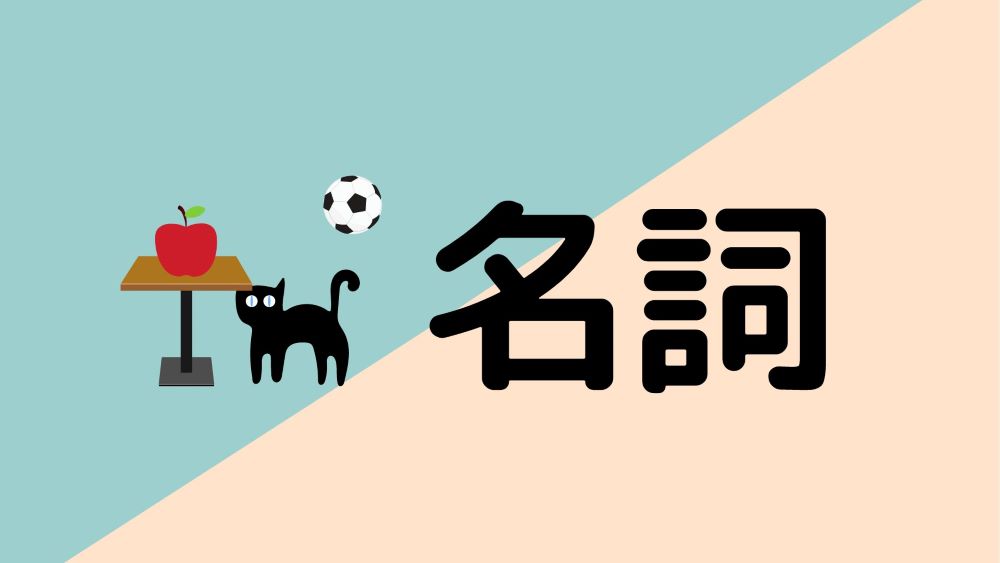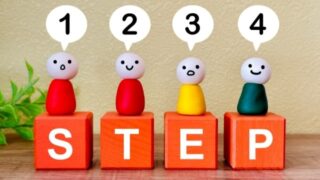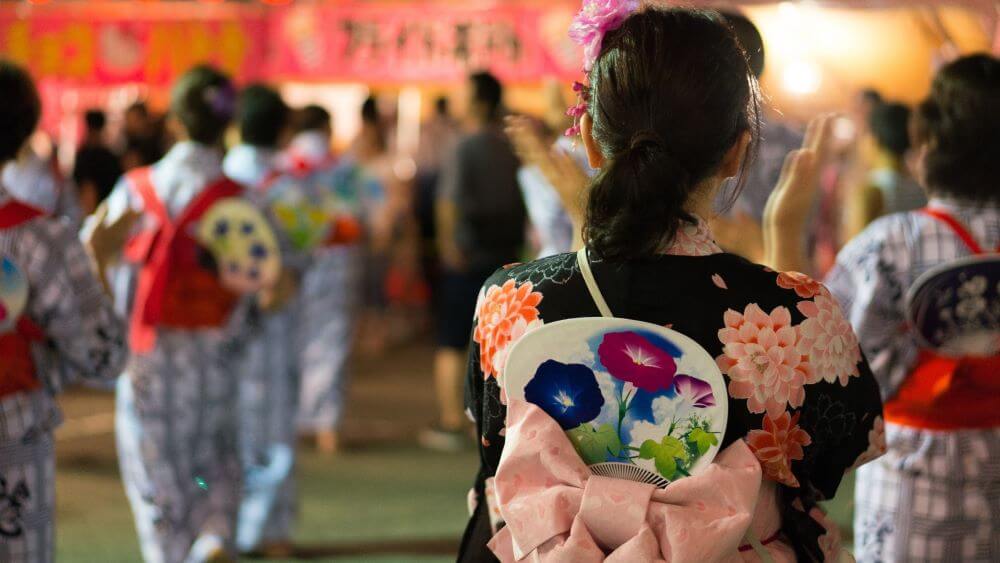Here are 100 frequently used Japanese nouns that are essential for beginners. These words are commonly used in daily life and are important to master early in your Japanese learning journey. Pronunciation guides and simple sentences are provided.
Download the noun list in PDF for free.
Frequently Used Japanese Nouns
People and Family
| Noun | Pronunciation | Meaning | Example sentence |
|---|---|---|---|
| 人 | [Hito] | People | There are many people in the park. 公園にたくさんの人がいる。 |
| 男 | [Otoko] | Male Man | He is a tall man. 彼は背の高い男です。 |
| 女 | [Onna] | Female Woman | I’m a woman. 私は女です。 |
| 家族 | [Kazoku] | Family | They are a happy family. 彼らは幸せな家族です。 |
| 名前 | [Namae] | Name | What is your name? あなたの名前は何ですか? |
| 親 | [Oya] | Parent | His parents are kind. 彼の親は優しいです。 |
| 子供 | [Kodomo] | Child | Children are playing outside. 子供たちが外で遊んでいます。 |
| お父さん | [Otou-san] | Father | My father is a doctor. お父さんは医者です。 |
| お母さん | [Okaa-san] | Mother | My mother is small. お母さんは小さいです。 |
| お兄さん | [Onii-san] | Older brother | He is my older brother. 彼は私のお兄さんです。 |
| お姉さん | [Onee-san] | Older sister | I have two older sisters. 私は2人のお姉さんがいます。 |
| 弟 | [Otouto] | Younger brother | They are my younger brothers. 彼らは私の弟たちです。 |
| 妹 | [Imouto] | Younger sister | She is my younger sister. 彼女は私の妹です。 |
| 兄弟 | [Kyoudai] | Siblings | They are close siblings. 彼らは仲の良い兄弟です。 |
| 友達 | [Tomodachi] | Friend | I have many friends. 私は友達がたくさんいます。 |
Body and Health
| Noun | Pronunciation | Meaning | Example sentence |
|---|---|---|---|
| 体 | [Karada] | Body | He has a strong body. 彼は体が丈夫です。 |
| 頭 | [Atama] | Head | I bumped my head. 頭をぶつけた。 |
| 足 | [Ashi] | Foot | She hurt her foot. 彼女は足を痛めました。 |
| 口 | [Kuchi] | Mouth | Please keep your mouth shut. 口を閉じてください。 |
| 髪 | [Kami] | Hair | She has long hair. 彼女は髪が長いです。 |
| 目 | [Me] | Eye | He opened his eyes. 彼は目を覚ました。 |
| 手 | [Te] | Hand | Show me your hand. 手を見せてください。 |
| 心 | [Kokoro] | Heart | My heart is excited. 心がわくわくしている。 |
| 病気 | [Byouki] | Sick | I got a sick. 私は病気にかかった。 |
| 病院 | [Byouin] | Hospital | He is in the hospital. 彼は病院にいます。 |
| 警察 | [Keisatsu] | Police | The police arrived quickly. 警察がすぐに到着しました。 |
Food and Drink
| Noun | Pronunciation | Meaning | Example sentence |
|---|---|---|---|
| 料理 | [Ryouri] | Dish | Japanese dish is healthy. 日本料理はヘルシーです。 |
| ご飯 | [Gohan] | Rice | Japanese people eat rice every day. 日本人は毎日ご飯を食べます。 |
| デザート | [Dezaato] | Dessert | I love desserts. 私はデザートが好きです。 |
| パン | [Pan] | Bread | She bought some bread from the bakery. 彼女はパン屋からパンを買いました。 |
| お茶 | [Ocha] | Tea | Would you like some tea? お茶でもいかがですか? |
| コーヒー | [Koohii] | Coffee | He drinks coffee every morning. 彼は毎朝コーヒーを飲みます。 |
| 水 | [Mizu] | Water | Please bring me a glass of water. 水を一杯持ってきてください。 |
| 砂糖 | [Satou] | Sugar | She added sugar to her tea. 彼女はお茶に砂糖を入れました。 |
| 塩 | [Shio] | Salt | This dish needs a bit more salt. この料理はもう少し塩が必要です。 |
| 野菜 | [Yasai] | Vegetable | I don’t like vegetables. 私は野菜が嫌いです。 |
| 果物 | [Kudamono] | Fruit | He eats fruit after dinner. 彼は食後に果物を食べます。 |
| 魚 | [Sakana] | Fish | They are having fish for dinner. 彼らは夕食に魚を食べています。 |
| 肉 | [Niku] | Meat | He loves meats. 彼は肉が好きです。 |
Daily Life
| Noun | Pronunciation | Meaning | Example sentence |
|---|---|---|---|
| 家 | [Ie][Uchi] | House | This is my house. これは私の家です。 |
| ドア | [Doa] | Door | Please close the door. ドアを閉めてください。 |
| 窓 | [Mado] | Window | She opened the window. 彼女は窓を開けました。 |
| 部屋 | [Heya] | Room | This is my room. これは私の部屋です |
| キッチン | [Kicchin] | Kitchen | She is cooking in the kitchen. 彼女はキッチンで料理をしています。 |
| お風呂 | [Ofuro] | Bath | Let’s take a bath. お風呂に入りましょう。 |
| トイレ | [Toire] | Toilet | Where is the restroom? トイレはどこですか? |
| ベッド | [Beddo] | Bed | This is a comfortable bed. これは快適なベッドです。 |
| 電気 | [Denki] | Electricity Light | Turn off the lights. 電気を消してください。 |
| コップ | [Koppu] | Cup | Can you pass me a cup? コップを取ってくれますか? |
| 電話 | [Denwa] | Phone | I will give you my phone number. 私の電話番号を渡します。 |
| 服 | [Fuku] | Clothes | She bought new clothes. 彼女は新しい服を買いました。 |
| 靴 | [Kutsu] | Shoes | These are comfortable shoes. これらは快適な靴です。 |
| 車 | [Kuruma] | Car | Car He drives a red car. 彼は赤い車を運転します。 |
Time and Date
| Noun | Pronunciation | Meaning | Example sentence |
|---|---|---|---|
| 朝 | [Asa] | Morning | I eat breakfast in the morning. 朝に朝食を食べます。 |
| 昼 | [Hiru] | Noon | It’s hottest at noon お昼は一番暑くなる。 |
| 夜 | [Yoru] | Night | Let’s watch a film together at night. 夜は一緒に映画を見ましょう。 |
| 今 | [Ima] | Now | I am busy now. 私は今忙しいです。 |
| 時間 | [Jikan] | Time | I don’t have time. 私は時間がありません。 |
| 昨日 | [Kinou] | Yesterday | I saw him yesterday. 昨日彼に会いました。 |
| 今日 | [Kyou] | Today | What are your plans for today? 今日の予定は何ですか? |
| 明日 | [Ashita] | Tomorrow | Tomorrow See you tomorrow! また明日ね! |
| 毎日 | [Mainichi] | Everyday | I exercise every day. 毎日運動しています。 |
| 今年 | [Kotoshi] | This year | What are your plans for this year? 今年の計画は何ですか? |
| 分 | [Fun] | Minute | Wait 5 minutes, please. 5分お待ちください。 |
| 秒 | [Byou] | Second | Please let me know after 10 seconds. 10秒たったら教えてください。 |
| 日 | [Hi] | Day | Today is a beautiful day. 今日はいい日です。 |
| 月 | [Tsuki] [Gatsu] | Month Moon | Please come again next month. 来月また来てください。 The moon looks beautiful tonight. 今夜は月がきれいに見えます。 |
| 年 | [Nen] | Year | Happy New Year! 新年おめでとうございます! |
| 曜日 | [Youbi] | Day | What day of the week is it today? 今日は何曜日ですか? |
Location and Direction
| Noun | Pronunciation | Meaning | Example sentence |
|---|---|---|---|
| 右 | [Migi] | Right | I write with my right hand. 私は右手で書きます。 |
| 左 | [Hidari] | Left | Please turn left. 左にまがってください。 |
| 上 | [Ue] | Up | The lift is going up. エレベーターが上にあがっています。 |
| 下 | [Shita] | Down | She looked down from the bridge. 彼女は橋から下を見た。 |
Study and Work
| Noun | Pronunciation | Meaning | Example sentence |
|---|---|---|---|
| 会社 | [Kaisha] | Company | He works at a big company. 彼は大きな会社で働いています。 |
| 仕事 | [Shigoto] | Work | What do you do for work? 仕事は何をしていますか? |
| 学校 | [Gakkou] | School | She teaches at a school. 彼女は学校で教えています。 |
| 先生 | [Sensei] | Teacher | He is a good teacher. 彼は良い先生です。 |
| 生徒 | [Seito] | Student | I’m a student at this school. 私はこの学校の生徒です |
| 本 | [Hon] | Book | She loves reading books. 彼女は本を読むのが好きです。 |
| 紙 | [Kami] | Paper | Please write it down on paper. 紙に書いてください。 |
| ペン | [Pen] | Pen | I forgot to bring my pen. ペンを持ってくるのを忘れました。 |
| 勉強 | [Benkyou] | Study | I need to study for the exam. 試験の勉強をしなければなりません。 |
| 音楽 | [Ongaku] | Music | She listens to classical music. 彼女はクラシック音楽を聴きます。 |
| スポーツ | [Supootsu] | Sports | He plays sports every weekend. 彼は毎週末スポーツをします。 |
| 数字 | [Suuji] | Number | Please write down your phone number. 電話番号を書いてください。 |
Other Common Nouns
| Noun | Pronunciation | Meaning | Example sentence |
|---|---|---|---|
| 動物 | [Doubutsu] | Animal | I love animals. 動物が好きです。 |
| 犬 | [Inu] | Dog | She has a cute dog. 彼女はかわいい犬を飼っています。 |
| 猫 | [Neko] | Cat | A cat is sleeping. 猫が寝ています。 |
| 花 | [Hana] | Flower | She received a bouquet of flowers. 彼女は花束をもらいました。 |
| 生活 | [Seikatsu] | Life | He leads a busy life. 彼は忙しい生活を送っています。 |
| 店 | [Mise] | Shop | The shop is always crowded. お店はいつも混んでいます。 |
| お金 | [Okane] | Money | Do you have enough money? 十分なお金はありますか? |
| 町 | [Machi] | Town | She lives in a small town. 彼女は小さな町に住んでいます。 |
| 国 | [Kuni] | Country | Japan is a beautiful country. 日本は美しい国です。 |
| 駅 | [Eki] | Station | We arrived at the station. 駅に着きました。 |
| 道 | [Michi] | Road Street | Go straight on this road. この道をまっすぐ進んでください。 |
| 電車 | [Densha] | Train | I take the train to work. 仕事に電車で行きます。 |
| 色 | [Iro] | Colour | What is your favourite colour? 好きな色は何ですか? |
| 海 | [Umi] | Sea | We went to the sea last summer. 去年の夏、海に行きました。 |
| 山 | [Yama] | Mountain | She climbed the mountain. 彼女は山を登りました。 |
By learning these words, you’ll be ready to kick-start your Japanese learning journey. These words cover essential vocabulary for learning basic grammar.
If you want to learn effective self-study methods for Japanese, check this out!



